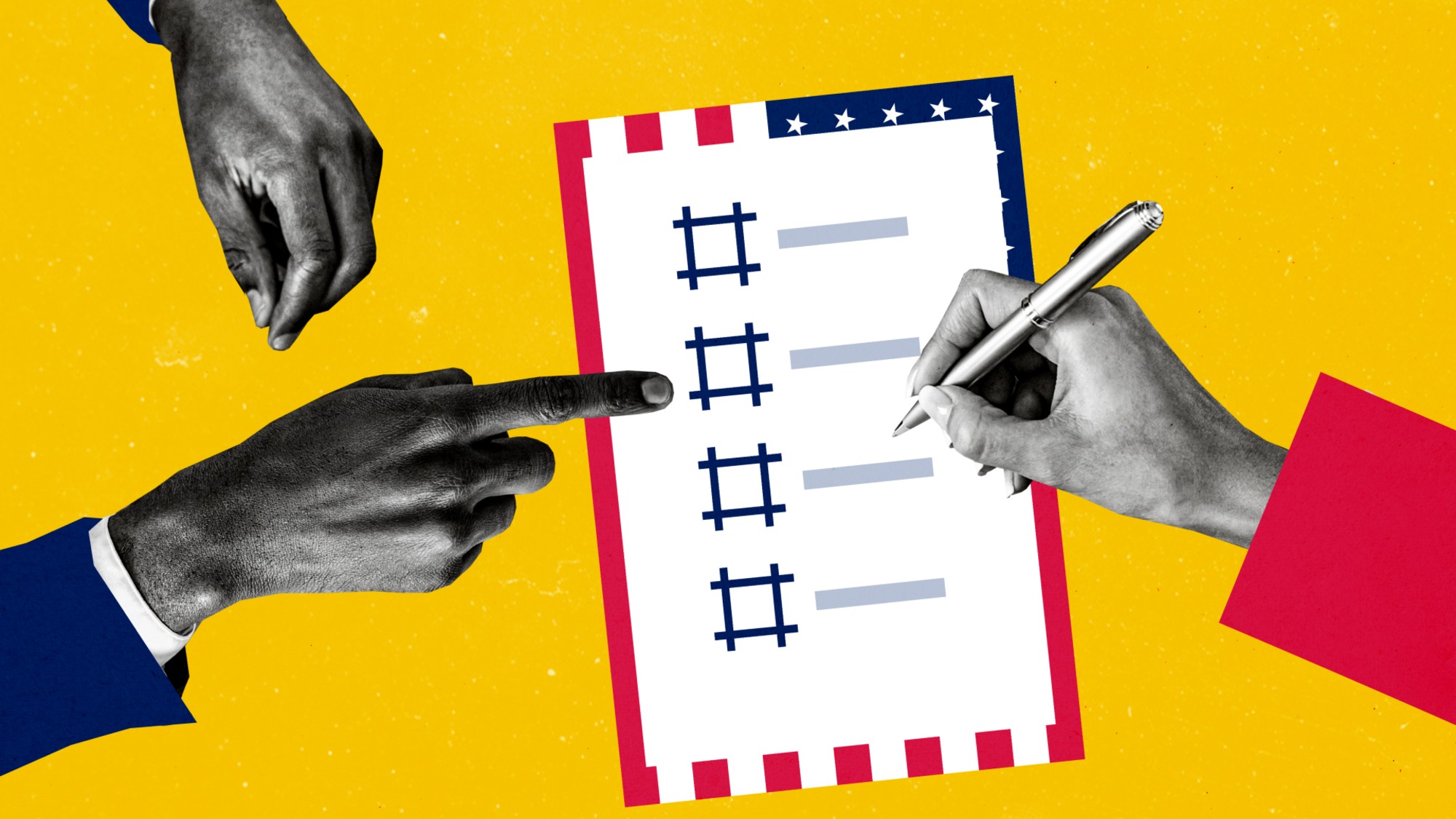Why Donald Trump declared victory when he has not won the US election
US president seeks to cast doubt on postal ballots that may hand Joe Biden victory

A free daily email with the biggest news stories of the day – and the best features from TheWeek.com
You are now subscribed
Your newsletter sign-up was successful
After a highly unpredictable US election campaign that has been upended by coronavirus and the Black Lives Matter protests, results day is following a familiar script.
“President Trump has told confidants he’ll declare victory on Tuesday night if it looks like he’s ‘ahead’,” US news website Axios reported last weekend. “That’s even if the electoral college outcome still hinges on large numbers of uncounted votes in key states like Pennsylvania.”
This morning, as the count continued in Pennsylvania, Donald Trump did exactly that.
The Week
Escape your echo chamber. Get the facts behind the news, plus analysis from multiple perspectives.

Sign up for The Week's Free Newsletters
From our morning news briefing to a weekly Good News Newsletter, get the best of The Week delivered directly to your inbox.
From our morning news briefing to a weekly Good News Newsletter, get the best of The Week delivered directly to your inbox.
“We were getting ready to win this election,” he said from the White House early on Wednesday. “Frankly, we did win this election… As far as I’m concerned, we already have won it.”
Trump’s claim is based on partial results - and even they give Joe Biden the edge. According to latest figures from The Guardian, the Democratic challenger is leading the race for electoral college votes by 238 to 213.
However, states worth a total of 87 electoral college votes are still too close to call, and in these races Trump might suspect that his position will weaken as more ballots are counted.
“Due to the pandemic, many Democratic voters in the potentially decisive states of Georgia, Wisconsin, Pennsylvania, and Michigan cast their ballots by mail,” says Slate. And “it was always expected that a big block of pro-Biden ballots would be counted in the hours and days after election night”.
A free daily email with the biggest news stories of the day – and the best features from TheWeek.com
Yet in what The New York Times describes as “a reckless attack on the democratic process”, Trump has claimed that counting these votes would represent “a major fraud”.
According to Axios, the president and his advisers have been “laying the groundwork for this strategy for weeks”, with the aim of planting the idea that the “Democrats would have ‘stolen’ the election”.
In fact, vote-counting usually drags on long after the polls close, even when the result is decisive.
“Election results are never truly final on the night of the election,” says Business Insider. News networks may project a winner based on partial returns, but “in every election, including in 2016, many states ended up counting a substantial proportion of their ballots after election day”.
What is “remarkable” is that Trump may end up undermining his own victory, says CNN. “It appears that the president has a good chance of winning outstanding states in Pennsylvania, Wisconsin, Georgia, North Carolina and Michigan, which could hand him a second term.”
Holden Frith is The Week’s digital director. He also makes regular appearances on “The Week Unwrapped”, speaking about subjects as diverse as vaccine development and bionic bomb-sniffing locusts. He joined The Week in 2013, spending five years editing the magazine’s website. Before that, he was deputy digital editor at The Sunday Times. He has also been TheTimes.co.uk’s technology editor and the launch editor of Wired magazine’s UK website. Holden has worked in journalism for nearly two decades, having started his professional career while completing an English literature degree at Cambridge University. He followed that with a master’s degree in journalism from Northwestern University in Chicago. A keen photographer, he also writes travel features whenever he gets the chance.
-
 What to watch on TV this February
What to watch on TV this Februarythe week recommends An animated lawyers show, a post-apocalyptic family reunion and a revival of an early aughts comedy classic
-
 Is the US in a hiring recession?
Is the US in a hiring recession?Today's Big Question The economy is growing. Job openings are not.
-
 How to juggle saving and paying off debt
How to juggle saving and paying off debtthe explainer Putting money aside while also considering what you owe to others can be a tricky balancing act
-
 Trump links funding to name on Penn Station
Trump links funding to name on Penn StationSpeed Read Trump “can restart the funding with a snap of his fingers,” a Schumer insider said
-
 Trump reclassifies 50,000 federal jobs to ease firings
Trump reclassifies 50,000 federal jobs to ease firingsSpeed Read The rule strips longstanding job protections from federal workers
-
 Trump’s plan to ‘nationalize’ US elections
Trump’s plan to ‘nationalize’ US electionsTalking Points States oversee voting. Will Republicans take over?
-
 Is the Gaza peace plan destined to fail?
Is the Gaza peace plan destined to fail?Today’s Big Question Since the ceasefire agreement in October, the situation in Gaza is still ‘precarious’, with the path to peace facing ‘many obstacles’
-
 Vietnam’s ‘balancing act’ with the US, China and Europe
Vietnam’s ‘balancing act’ with the US, China and EuropeIn the Spotlight Despite decades of ‘steadily improving relations’, Hanoi is still ‘deeply suspicious’ of the US as it tries to ‘diversify’ its options
-
 Trump demands $1B from Harvard, deepening feud
Trump demands $1B from Harvard, deepening feudSpeed Read Trump has continually gone after the university during his second term
-
 Trump’s Kennedy Center closure plan draws ire
Trump’s Kennedy Center closure plan draws ireSpeed Read Trump said he will close the center for two years for ‘renovations’
-
 Trump's ‘weaponization czar’ demoted at DOJ
Trump's ‘weaponization czar’ demoted at DOJSpeed Read Ed Martin lost his title as assistant attorney general